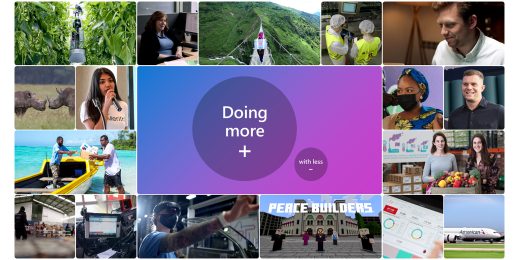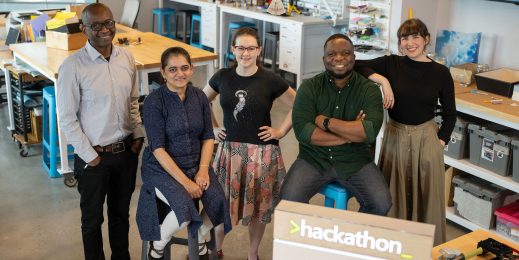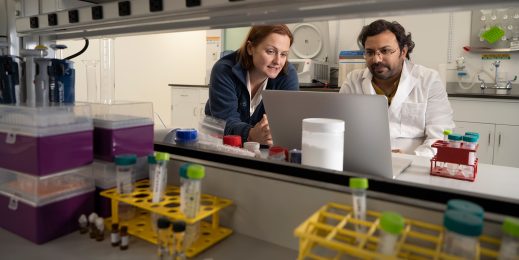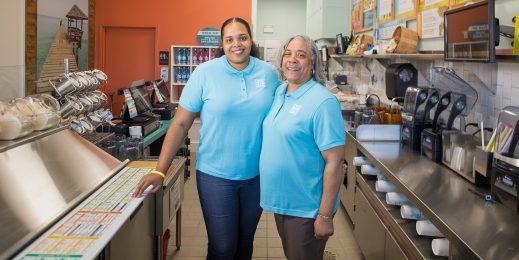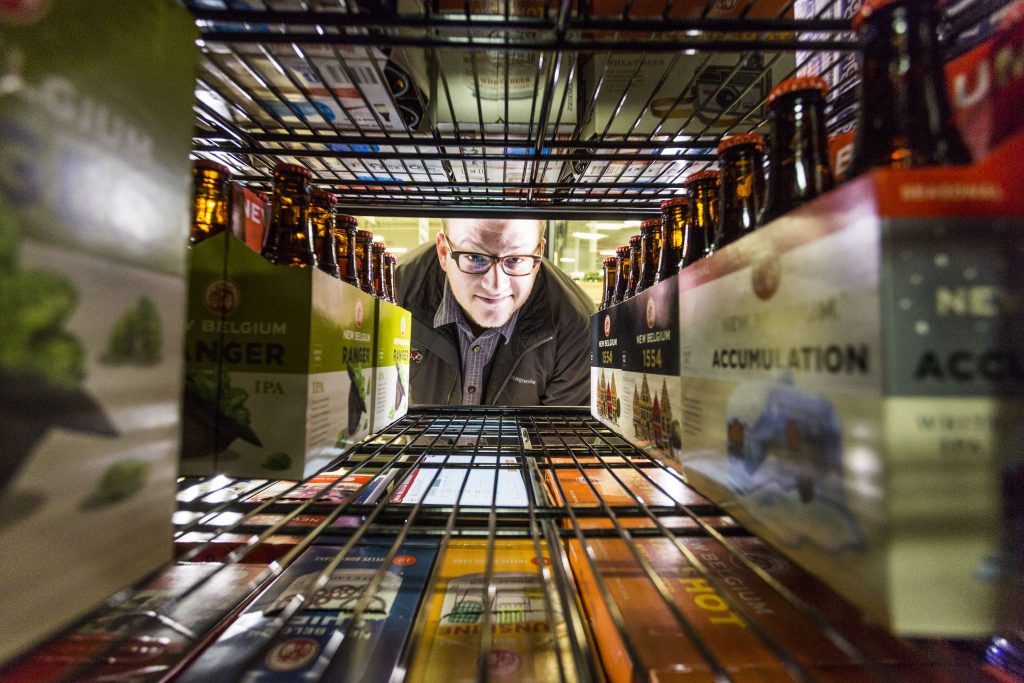
For the love of beer: New Belgium brews up data-centric approach to sustainable business growth
After arriving at the Fort Collins brewery on a crisp Colorado morning, Austin Whitaker strolls past a bike rack filled with custom Fat Tire vintage bicycles, gifts he and his fellow coworkers received on their one-year anniversary working at New Belgium Brewing. Inside, the musky scent of fermenting yeast fills the air, and colorful picture frames containing tchotchkes of New Belgium history adorn the walls of a place where almost anyone would love to work.
“Ten years ago, I told myself ‘this is where I want to be,’ and it took me eight years to get here,” laughs Whitaker, a playful, outgoing self-described “snowboard bum” with a wife and two young boys. He says he came to Colorado in 2001 for the mountains, not a career. That all changed after taking a private tour of the employee-owned New Belgium Brewery one day. “I viewed it as this mystical land of employment that was almost unattainable, and there was no way that you could ever get a job at a company this cool.”
These days Whitaker is rarely at the brewery. As one of New Belgium’s Beer Rangers, he spends most of his time out in the Denver suburbs building strong relationships with his customers ― the pubs, restaurants and supermarkets where New Belgium beer is sold. With the skyrocketing success of the craft beer market, which grew 18 percent in 2013, Whitaker and New Belgium face new challenges as more competitors vie to get their beers to thirsty customers. In response, New Belgium has done what it always does: innovate.
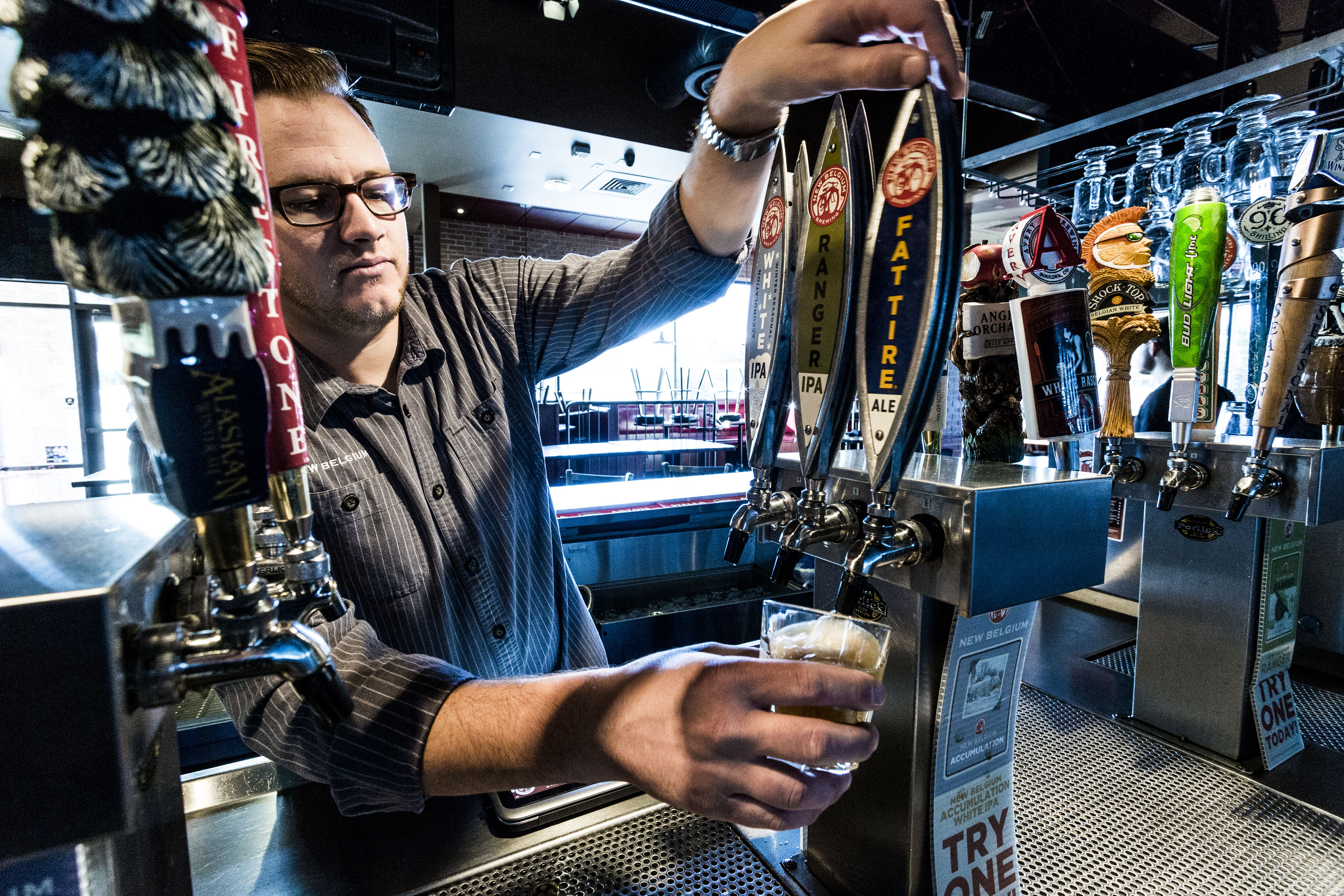
With the help of Windows, Microsoft Dynamics and SharePoint, New Belgium has become one of the most successful craft breweries in the U.S., without giving up its unique brand culture.
Faster, sharper insights, from the street to the office
Whitaker and the Beer Rangers’ job keeping customers happy is only half the story. Back at the brewery, Jess Askey, New Belgium’s information technology business analyst of sales, pores over customer data the Beer Rangers collect, trying to uncover new insights and opportunities to build the business. While serving in vastly different roles, both are needed to keep the beer flowing. That’s where having the right technology comes in.
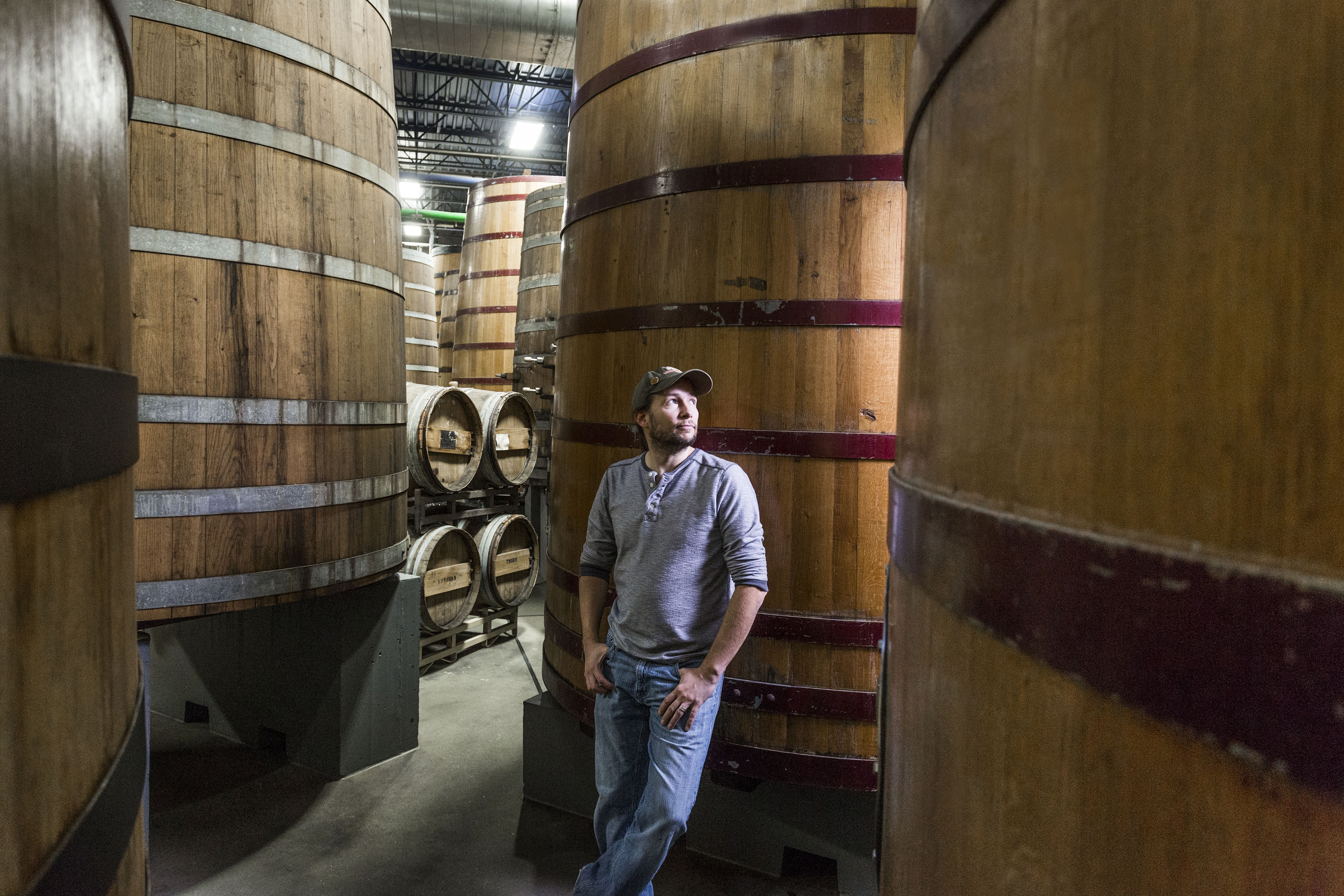
“Tapping technology to keep a pulse on what our customers are purchasing and what they’re doing in their lives helps our ground team hone in on trends they need to watch,” Whitaker says. “Whether it’s an uptick in sales of a certain flavor or how brews are getting paired with food, every bit helps us understand who we’re selling to that much better.”
Office 365 keeps Whitaker productive and connected with colleagues, but it’s Rangerland, a custom Window 8 app running on his Dell tablet, that provides a unique edge against the competition. By synchronizing with Microsoft Dynamics CRM, Rangerland gives him access to important customer and account information. The app even captures street-level data from local pubs, to distributors, to retail stores: for example, quality assurance (QA) surveys. If the survey reveals a potential issue, New Belgium’s QA team receives a notification that allows them to quickly work with the appropriate Ranger, distributor or account contact to solve it.
“Data is power when you’re in front of a customer. Before I sit across the table from one, I need to know everything I can about the state of the account and satisfaction levels. Without that, it can be a challenge to address what’s top of mind for them,” says Whitaker.

The same can be said for Askey and his role as a business analyst, who uses Dynamics CRM and Dynamics AX to mine valuable insights from New Belgium’s wealth of data and share it across the company. “Without the budget for sophisticated data analytics tools that bigger breweries have, we had to find a way to supplement our street smarts and intuition with a solid CRM platform that give us insight on the latest trends, whether it’s sales patterns, inventory levels or customer preferences,” Askey explains. “And, with Dynamics AX, we’re able to update our data companywide nightly. In the past, it took days, even weeks to do that.”
“You can visit an account, and customers can say, ‘Oh, this beer you sold me just isn’t selling.’ And a lot of times, they don’t know for sure,” agrees Whitaker. “Being able to pull up sales history at the drop of a hat has saved many a draft handle out there — and saved a lot business for us.”
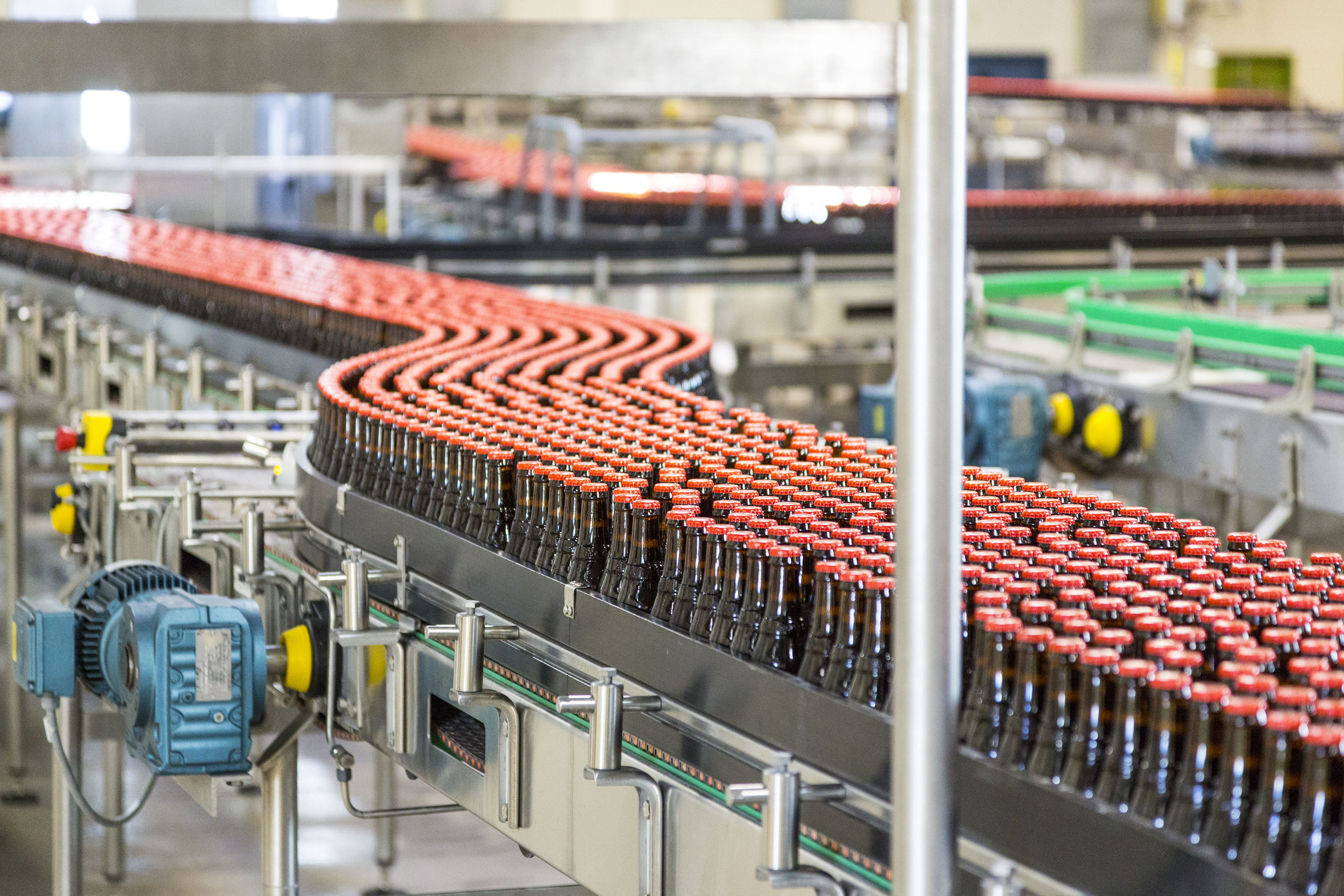
The numbers speak for themselves: New Belgium’s production increased 18 percent from just under 800,000 barrels in 2013 to 945,000 in 2014.
The recipe for a winning culture
Though craft breweries continue to soar in the U.S., brewing great beer isn’t always enough to stand out — preserving and sharing the business culture that makes them such highly sought-after places to work is just as important. Despite the fun atmosphere, New Belgium takes its 10 core values and beliefs very seriously. When it began preparations to open a new brewery in Asheville, North Carolina, by the end of 2015, the company sent volunteer employees to the Tar Heel State to immerse new employees in its culture. However, the brewery also needed a way to give employees instant access to information about company beliefs, values and activities.
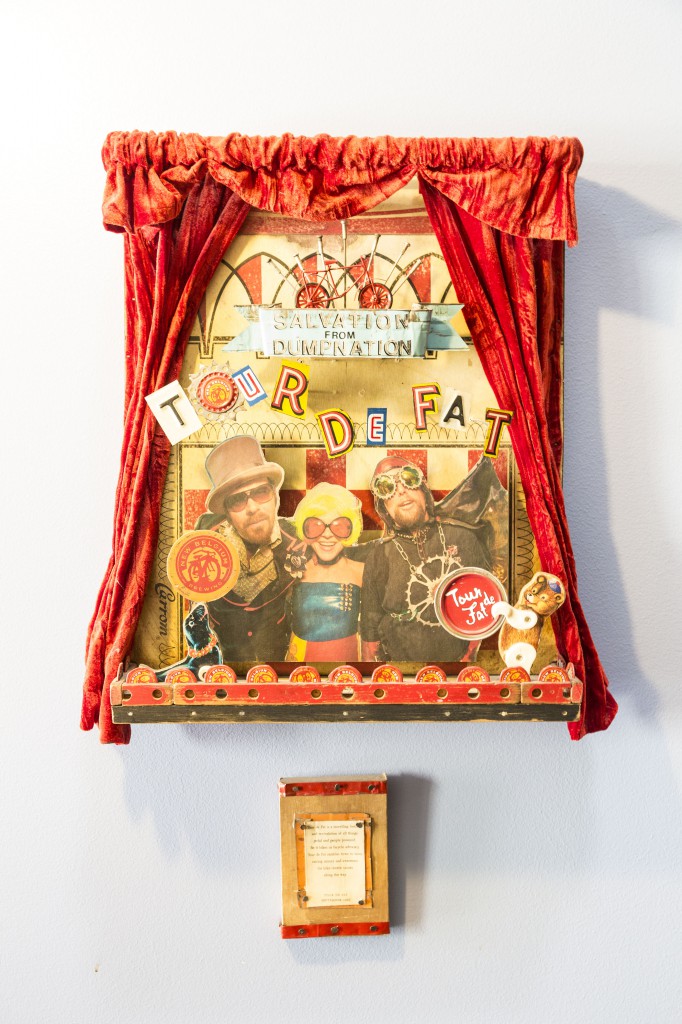
MotherNet, New Belgium’s SharePoint-based intranet, does just that. Engaging, fun brand stories like those told in their inspiring ”Beer Confidence” videos are housed on the site. It’s also where co-workers can learn about the Slow Ride Session IPA, which was inspired by an actual contest, Tour de Fat, where cyclists aim to race 20 feet as slowly as possible. Using technology to share stories like these helps everyone stay rooted in the company’s history and culture as it continues to grow, even when they’re located 1,500 miles and two time zones away.
“We want to make sure that every employee is empowered to tell stories about how our company and our beers came to be, and about the uniqueness of the experience each brew in our brand delivers to the customer,” Whitaker says.
For an analyst like Askey, it’s all about using data and other content to make each customer relationship feel personal. “If someone buys a large volume of beer, the MotherNet gives us the resources to work with that customer to figure out who they should sell to and how to advertise in their area. It’s a huge value-add that keeps us competitive while maintaining our unique brand identity.”
Technology to do and achieve more
With overall national beer production and sales down and craft brewing on the ascent, there’s never been more pressure on small, independent breweries to up their game. Rapid innovation and constant experimentation to stay ahead of evolving beer palates is a must-do, and everyone at New Belgium — from Beer Rangers, to sensory scientists, to sales managers and analysts — participates in contributing creative ideas.
In the end, it’s a love for brewing and commitment to their core principles that transcends all. And that means never losing sight of the things that keep people like Whitaker close to their communities, the environment and their families.
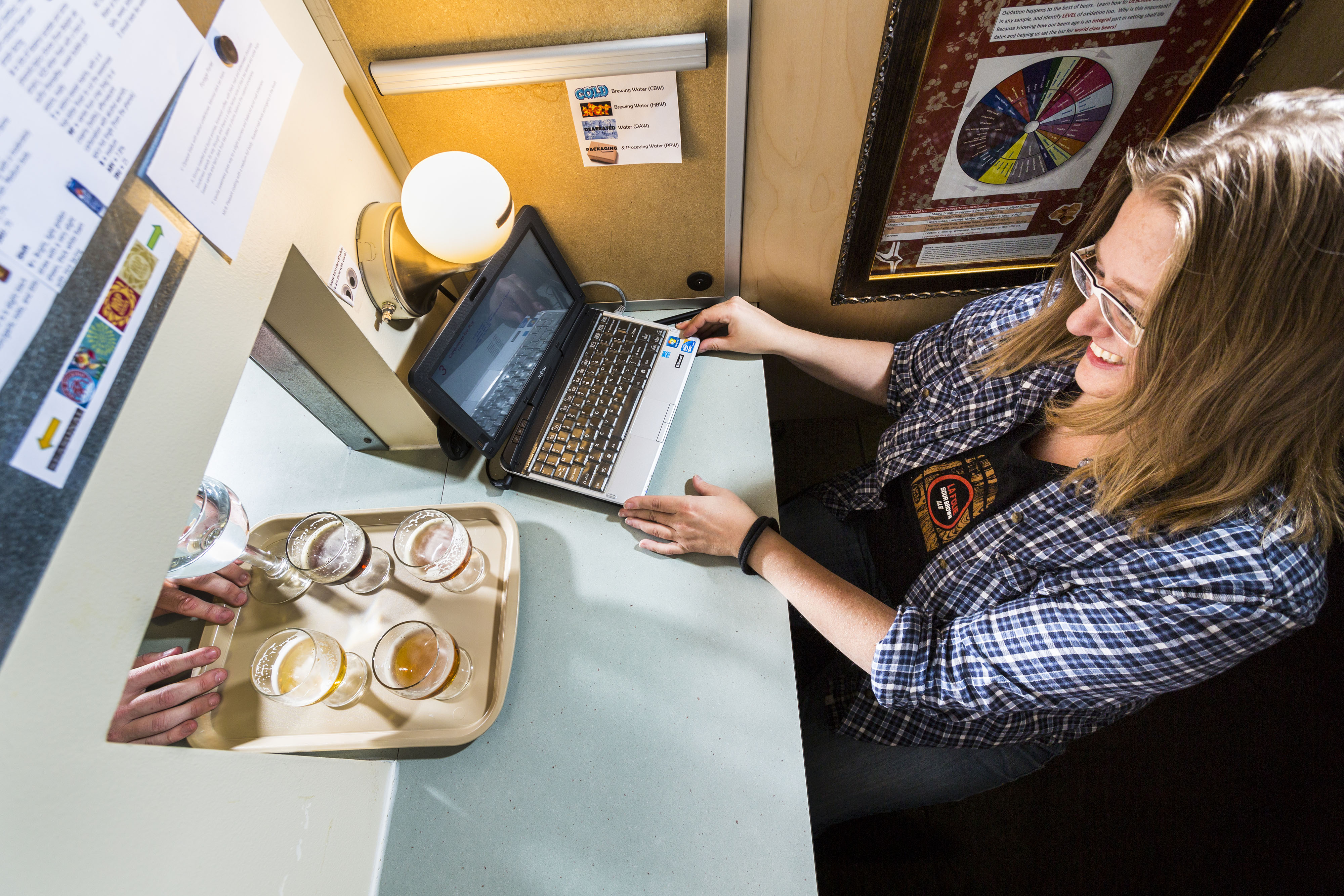
At a company that fiercely believes in balancing work with play, Whitaker’s perspective on technology in the workplace fits right in. “I care about technology to the degree that it helps me use my time efficiently while on the road, so when I come home, I’m fully present and not thinking about playing catchup on work,” he says. “An hour saved in a workday is an hour I get in the evenings to cook or simply hang out with my boys.”
Sounds just about right coming from an employee of a company that lists “having fun” as a core value in its mission statement.
Lead image caption: Beer Ranger and self-described “snowboard bum” Austin Whitaker checks in on the New Belgium beer inventory at a local supermarket.
Photos by Brian Smale / © Microsoft





